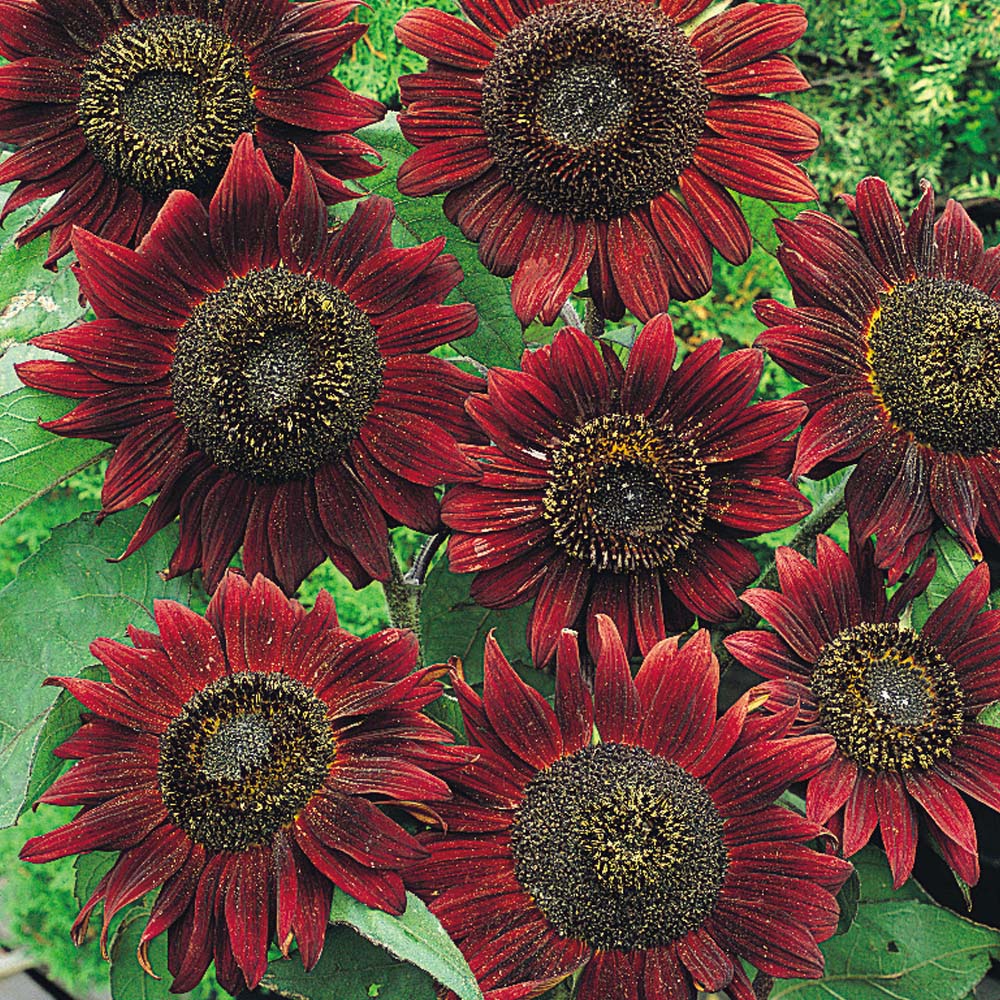
All three of us Growbag sisters are the products of what is apparently now considered the gold standard of tuition, our local single sex grammar school ‘Horsham High for Girls’ . We were so educationally well equipped that we could, apparently, have been captains of industry or Prime Ministers.
In 1737 Carl Linaeus proposed a system of naming all living things in two parts, the binomial system, which has not been bettered since. So a plant is first classified by the genus it belongs to, eg for sunflowers this is Helianthus (note that the genus name always begins with a capital letter and is written in italics to indicate that this is its proper scientific name) and secondly by its species name, which in the case of the annual sunflower is annuus (note that the species name begins with a lower case letter, but is also written in italics) so giving us the full scientific name of Helianthus annuus. Pretty straightforward, but really, they can’t even get this far sometimes…. It’s set out very clearly in Louise’s stunning choice for Great Plants this Month feature today – Pennisetum alopecuroides ‘Herbstzauber’.


So it’s quite hilarious that Laura actually got the naming of that sweet pea wrong in the video – it should of course be ‘odoratus‘ not ‘odorata‘. You see there IS something about plant-names that does it for me – and it’s the Latin, of course.
Being a Classics teacher, the genus and especially the species names often tell you so much about what the plant looks, what it does, when it flowers, or where you should grow it. And on top of that, many of them sound wildly romantic.
Thus, we have Lilium candidum – it has got to be white: Roman men wanting to win an election – the ‘candidates’ – wore a pure white toga. Or consider the official name of a very fine fastigiate bay that I saw in a lovely East Sussex garden a couple of weeks ago – Laurus nobilis ‘Angustifolia’: the noble, narrow-leaved bay, but it sounds so much lovelier, and indeed nobler, in Latin.
‘Palus’ is Latin for a marsh, so grow anything with ‘palustris’ in its name in a soggy situation, ‘pratensis’ will give you a plant that enjoys a damp meadow-situation, ‘repens’ – creeping – indicates a low-grower, ‘Sempervivum tectorum’ literally means ‘always-alive-of-the-roofs’ – a perfect place to grow this attractive houseleek.
And there’s Ancient Greek as well……Iris was the Greek goddess of the rainbow, for instance. ‘Hemera’ means ‘day’, ‘kalos’ means ‘beautiful’…how long do you think each lovely hemerocallis flower lasts?!

So it’s all rather a glorious game, with all these beautiful-sounding words helping us to become better-informed, and thus better, gardeners. Though I do acknowledge that we need consistency, am I really bovvered about how it’s put down on the paper? No chance, sister. But oh the poetry and magic in the words themselves……..

Yes Grammar School girls all three, but I suspect I was waved through the 11+ on an assumption that the brilliance of my elder sisters, although deeply latent in 11-year-old me, must surely surface soon. We continue to wait.
When I walk around Laura’s garden, bless her, she contorts herself in an effort to remember a plant’s correct genus, species and cultivar names as though the horticultural death squad have given her just 10 seconds to crack it. I’m actually only interested in knowing if it’s hardy and whether it will fit in my hand luggage. That said even I felt faintly let down by society when I spotted Dobbies selling a ficus-type houseplant labelled simply ‘Foliage, £6’. It’s as disturbing as Black Beauty ending up on the taxi rank. When a plant gets hoovered up by mass retailers feeding the British conservatory epidemic, apparently it can no longer expect the en

titlement of its botanical name. Although Elaine is undeniably annoying with her Latin intellectualising, even I expect people to know more about their plants than ‘it’s pink’.
But who am I to complain? My horticultural immaturity is not simply a caricature, it’s real. I found it school-girl funny when Elaine pointed out that my pronounciation of ‘anaphalis’ as ‘ana-phallus’, was incorrect, and when I realised one should apply the intonation in ‘superbum’ on the second syllable, not the much funnier third.
In my world plant naming, and almost every other challenge, is why God invented iPhones. Double simples.
NB if you enjoy reading our blogs, please hit the follow button to get them automatically, and pass the link onto friends. Thank you!

3 replies on “Grammar Schools: where a gardening education starts”
Laura, loved the video, I had no idea that I had lived so close to such an intelligent lot, shame it didn’t rub off!
Would you mind if I came and looked at your garden before the winter sets in.
Thanks
Ann W.
Anne thank you so much for your VERY generous comment about the Growbags. I’d love to see you and delighted to take a walk around the garden here. We are clipping the box hedges this weekend – are you able to drop in for a cuppa tomorrow? Laura
You three are fantastic!
Love it, love it , love it.